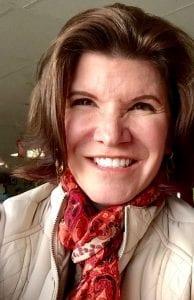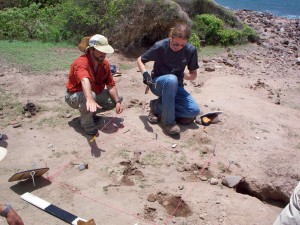
Dr. Marco Meniketti, left, works with a then-graduate student Chris Keith, ’15 MA Applied Anthropology, on excavating a burial site.
Dr. Marco Meniketti, a professor of archaeology in the College of Social Sciences’ anthropology department, will launch the Spring 2016 University Scholar Series (USS) on Feb. 24, from noon to 1 p.m. in MLK 225/229, with a lecture about the intersection of environmental change and the ascendancy of capitalism from the age of exploration through the late Industrial Revolution.
Meniketti has built a robust research portfolio since he attended his first field school in Jamaica at the start of his career when he helped excavate the sunken city of Port Royal, which had been destroyed in 1692 by an earthquake. From there, he participated in a search for the last two ships commanded by Columbus, followed by research in the Cayman Islands and the Caribbean.
“I began to branch out into the study of early colonial systems, slavery and environmental change,” he said.
Meniketti sees archaeological research as providing important lessons from the past about environmental change, labor and economics. His recently published book, Sugar Cane Capitalism and Environmental Transformation (The University of Alabama Press, 2016) explores these themes.
“While the outcomes of the current practices and environmental change may be uncertain in the present, we do know what the outcomes were in the past and, therefore, we may be able to influence the future outcomes or better comprehend the directions we are headed,” he said.
Meniketti actively engages students in field school projects through SJSU’s Faculty-Led Programs, where they are able to gain academic credit while participating in authentic data collection, mapping, artifact analysis, and other related activities in the Caribbean. Meniketti is also engaging students in a field project in Santa Cruz in partnership with the California Department of Parks and Recreation. He regularly attends conferences to report on student findings and the students who have participated in the field schools often continue onto graduate school.
“Archaeology is more than just digging up artifacts,” Meniketti said. “It is a means of exploring our past cultures, behaviors, patterns of settlement and industry, and environment. It is a science that can address everything from ancient technology to issues of social justice.”
Upcoming lectures:
Dr. Ivano Aiello, a professor of geological oceanography with the College of Science Moss Landing Marine Laboratories, on his research of microfossil-rich marine sediments and the information it provides about past climate conditions.
March 23, from noon to 1 p.m., in MLK 225/229
Dr. Janet Stemwedel, a professor and chair of the philosophy department in the College of Humanities and the Arts, will explore the ethical dimensions of being a good scientist that extend beyond avoiding or responding to scientific misconduct in her lecture.
April 20, from noon to 1 p.m., in MLK 255/257
The University Scholars Series is co-sponsored by the Office of the Provost, the University Library and the Spartan Bookstore.
-
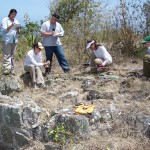
-
Students document a plantation cookhouse.
-
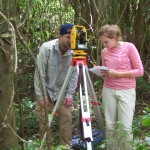
-
Students conduct a survey of a slave village.
-
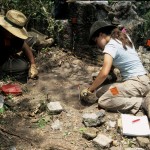
-
Students start a unit at an excavation site.
-
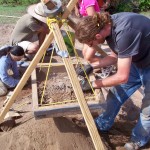
-
Students screen soil for bone fragments.
